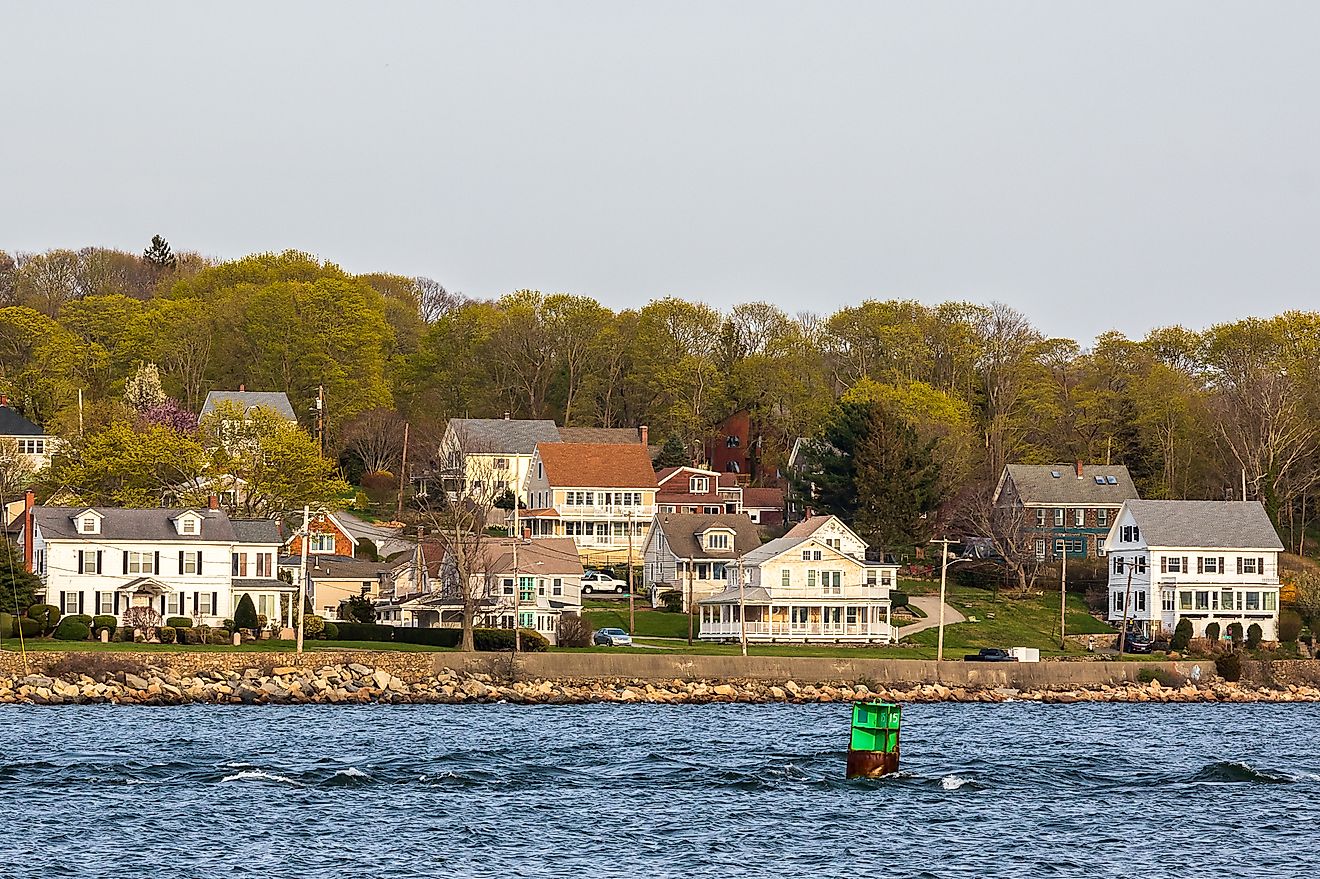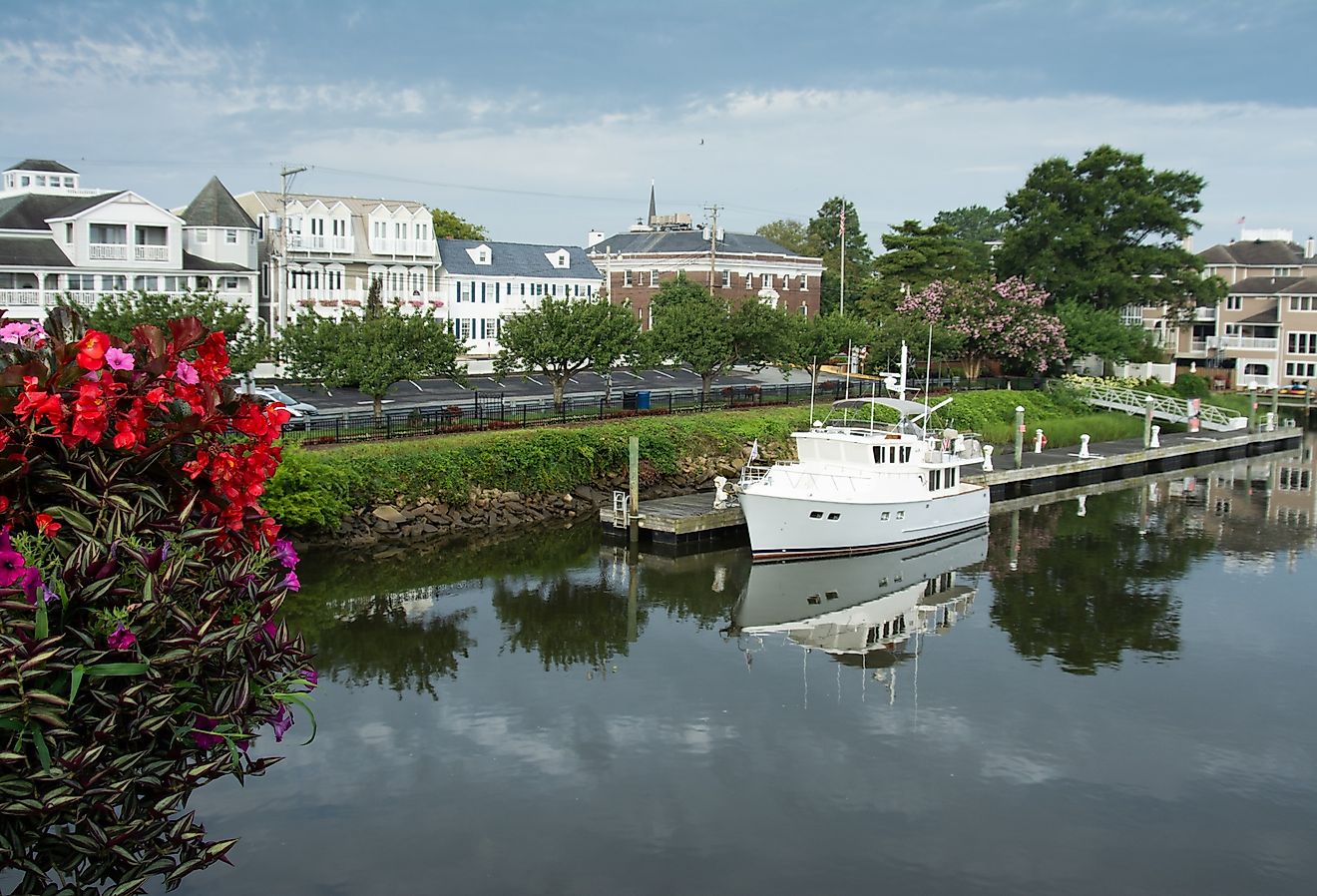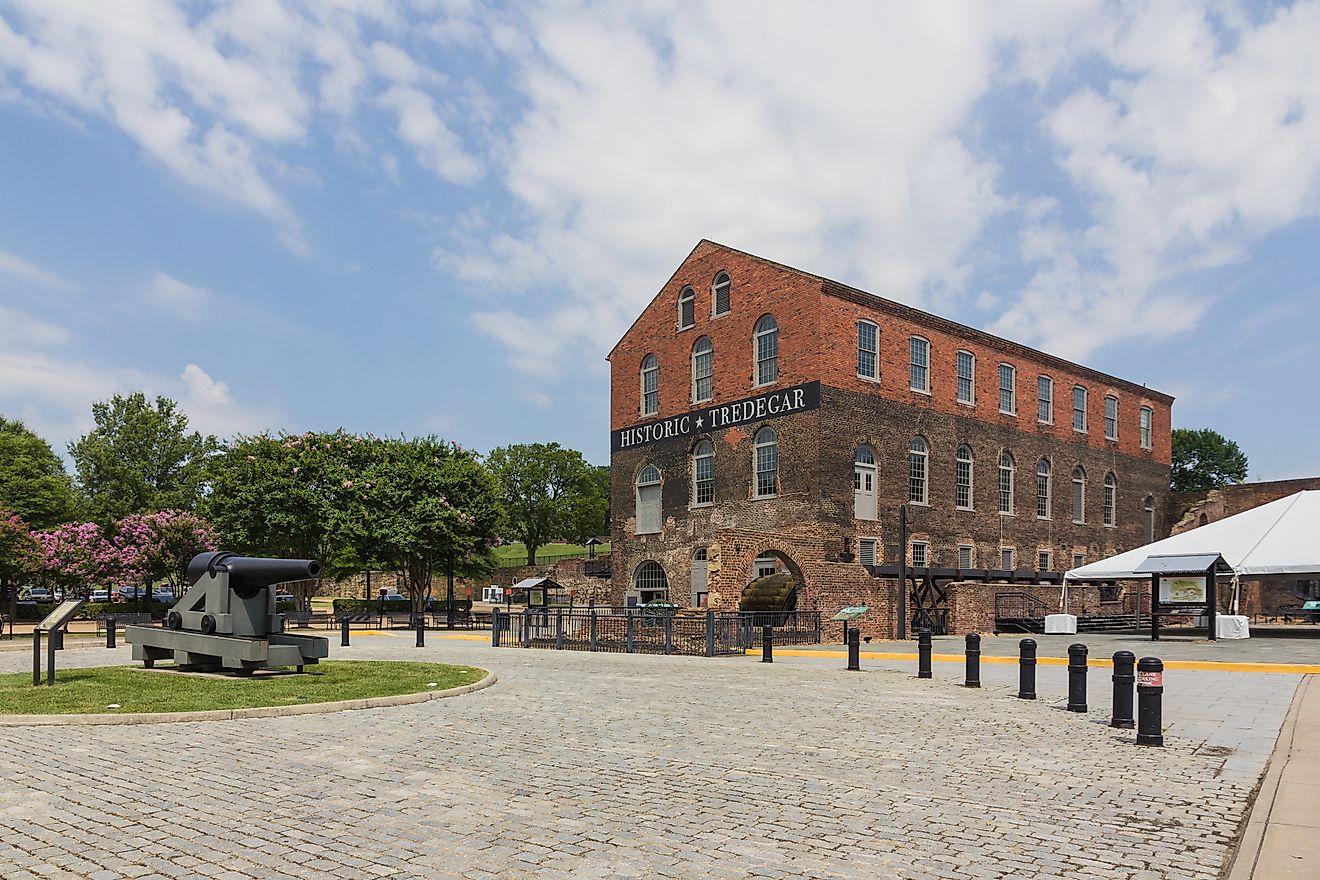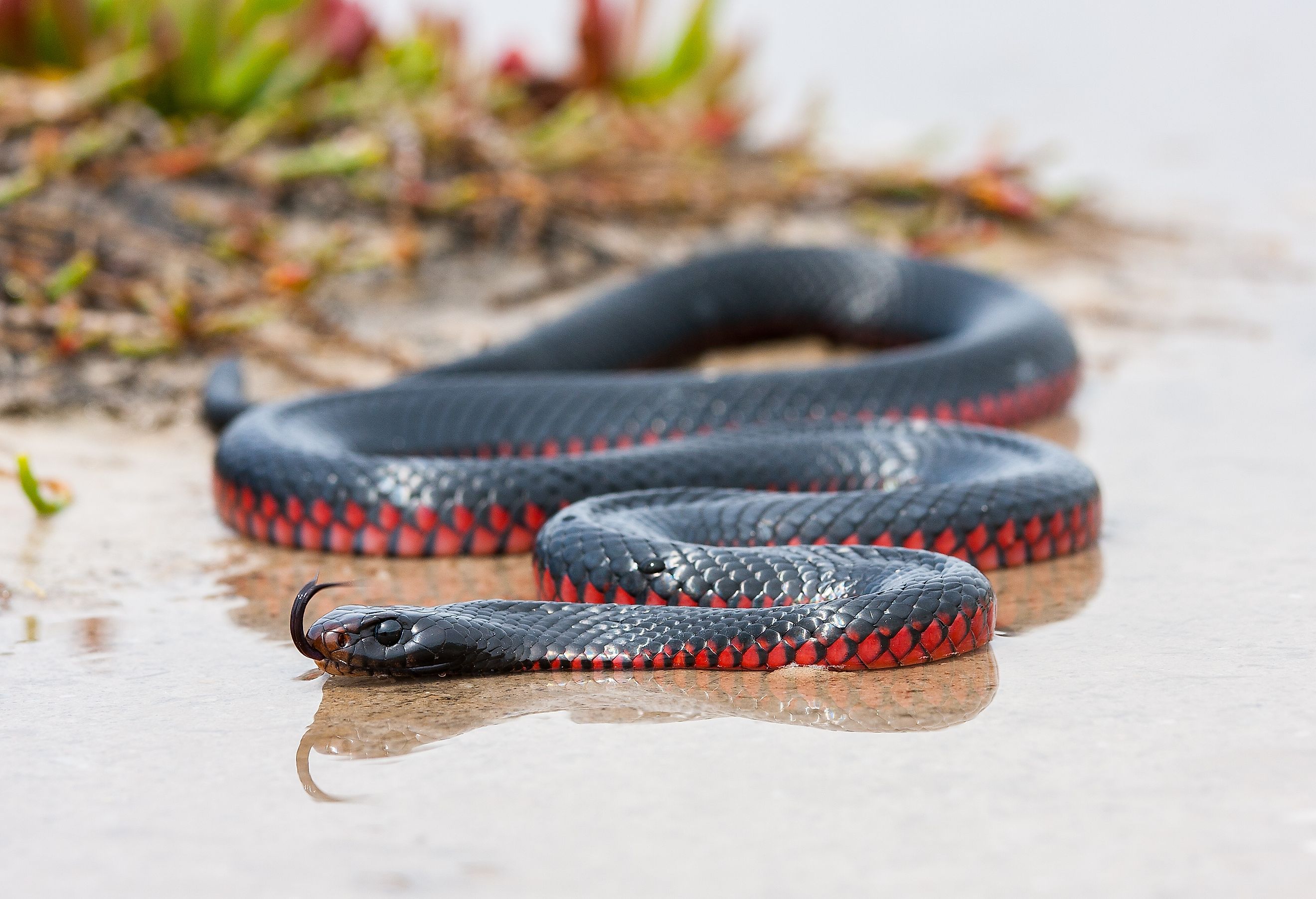
The 8 Most Snake Infested Areas in Victoria
Victoria, a picturesque state in southeastern Australia, is known for its diverse landscapes ranging from coastal regions to mountainous terrains. However, beneath its natural beauty lies a lurking danger: snakes. Victoria is home to several venomous snake species, including the Eastern Brown Snake, Tiger Snake, and Red-bellied Black Snake. As urban expansion encroaches on their habitats, encounters with these reptiles become increasingly common. Here, we explore the eight most snake-infested areas in Victoria, detailing why these locations are particularly prone to snake sightings and the precautions residents and visitors should take.
Yarra Valley
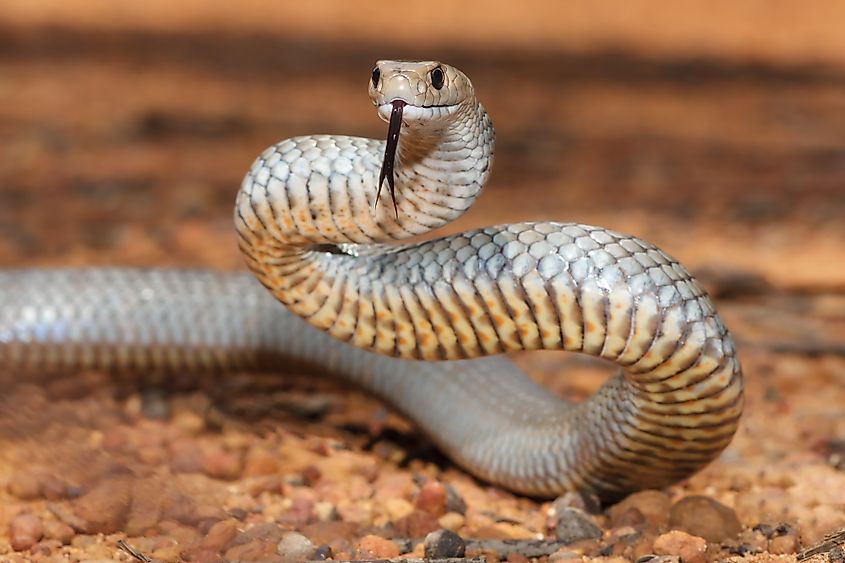
The Yarra Valley, famous for its lush vineyards and rolling hills, also harbors a significant snake population. The region's dense bushland and proximity to water sources create an ideal habitat for snakes. The Eastern Brown Snake, one of the world's most venomous, is frequently spotted here, particularly during the warmer months when they are most active.
Hikers and locals are advised to stick to well-trodden paths and wear protective clothing. The prevalence of long grass and fallen logs provides ample cover for snakes, making it easy for them to blend into their surroundings. Additionally, the increase in tourism and residential developments has led to more human-snake encounters, emphasizing the need for caution.
Mornington Peninsula
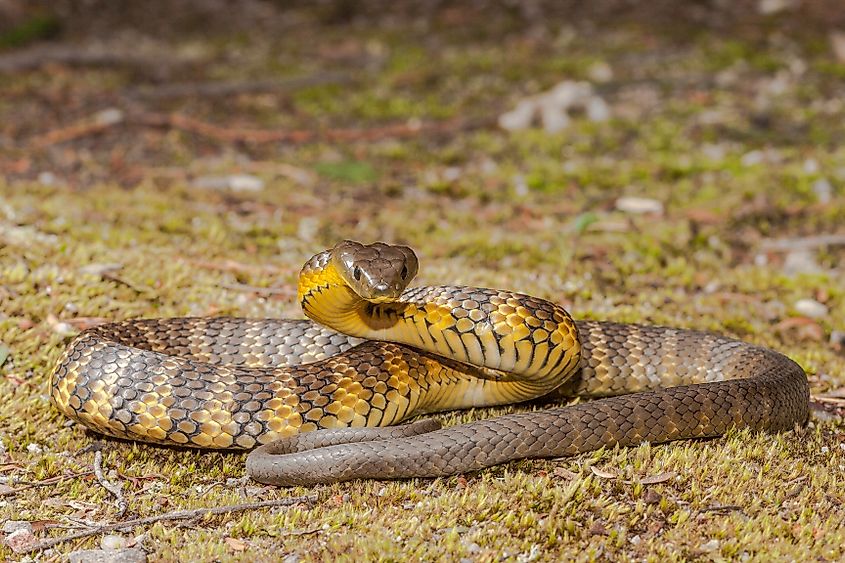
Known for its stunning beaches and coastal scenery, the Mornington Peninsula also attracts a variety of snake species. The sandy dunes, scrubland, and bushy areas are perfect hiding spots for the Tiger Snake, which is highly venomous and aggressive when threatened. These snakes are often seen near the Peninsula's many walking tracks and picnic areas.
Local authorities frequently issue warnings during peak snake season, advising people to be vigilant. The area's popularity with tourists, combined with its natural snake habitat, increases the risk of encounters. Beachgoers are particularly at risk, as snakes sometimes venture into the sand dunes and grassy areas adjacent to popular swimming spots.
Grampians National Park
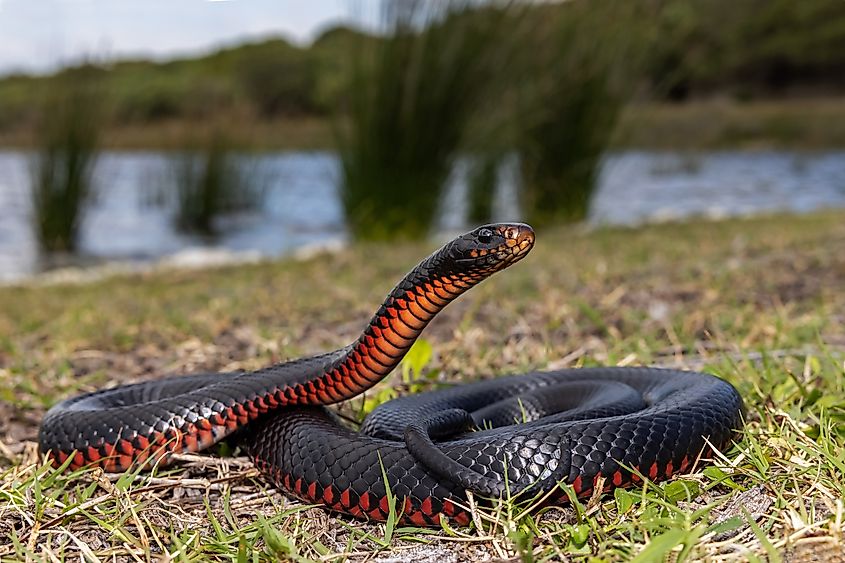
Grampians National Park, a favorite destination for nature enthusiasts and rock climbers, is another hotspot for snake activity. The park's rugged terrain and abundant wildlife make it a haven for various snake species, including the Red-bellied Black Snake and Eastern Brown Snake. These snakes are often found basking on the park's rocky outcrops or hunting in its dense undergrowth.
Visitors are advised to be cautious when exploring off-track areas. The park's remote nature means that medical help can be far away, making snake bites particularly dangerous. Proper preparation and awareness are crucial for anyone planning to hike or camp in the Grampians.
Dandenong Ranges
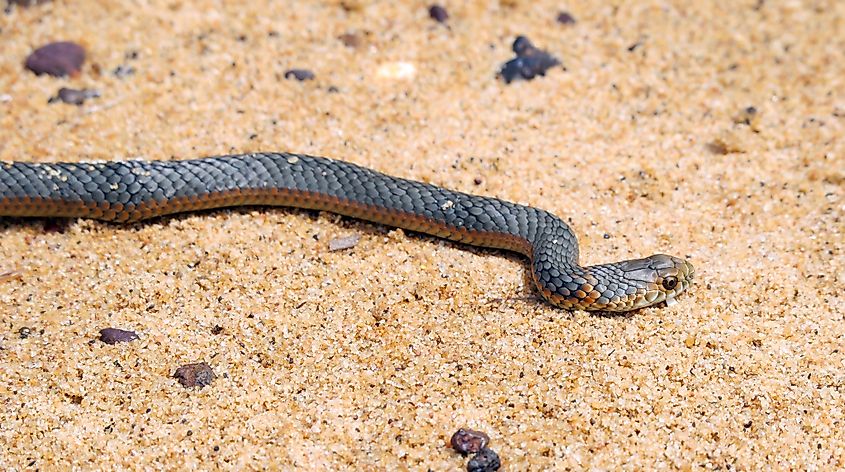
The Dandenong Ranges, with their cool temperate rainforest and scenic beauty, are also a habitat for snakes. The area is particularly known for the presence of the Tiger Snake and Lowland Copperhead. These snakes thrive in the damp, shaded environment provided by the dense forest and fern gullies.
Bushwalkers are often reminded to watch their step and keep an eye out for snakes, especially during the spring and summer months. The popularity of the Dandenong Ranges as a recreational area means that encounters with snakes are relatively common, necessitating a high level of awareness and caution among visitors.
Gippsland
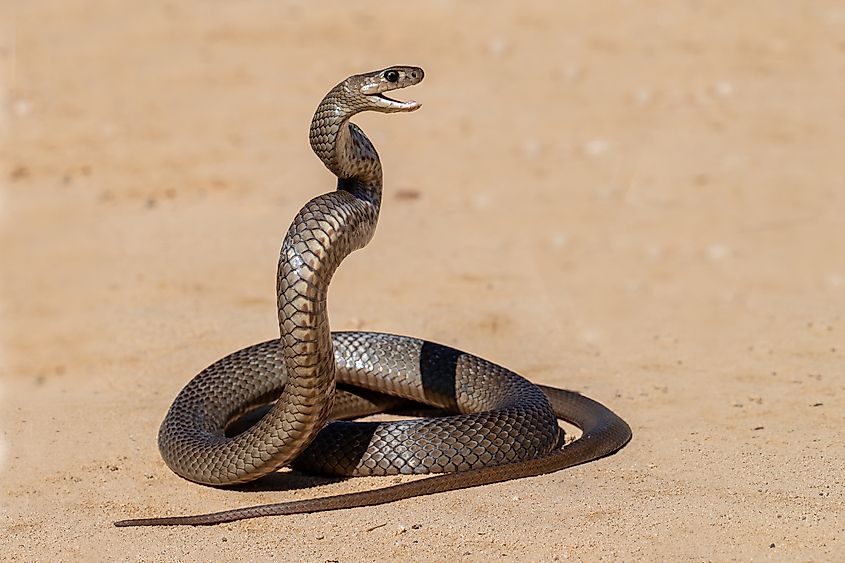
Gippsland, encompassing a large portion of eastern Victoria, is renowned for its diverse ecosystems, including wetlands, forests, and coastal areas. This diversity also supports a wide variety of snake species. The Eastern Brown Snake and Tiger Snake are frequently encountered here, particularly in the more remote and undeveloped parts of the region.
Farmers and residents in rural areas often report snake sightings, particularly during harvest season when snakes are more active. The mix of agricultural land and natural habitats provides ample opportunities for snakes to thrive, making Gippsland one of the most snake-prone regions in Victoria.
Murray River Region
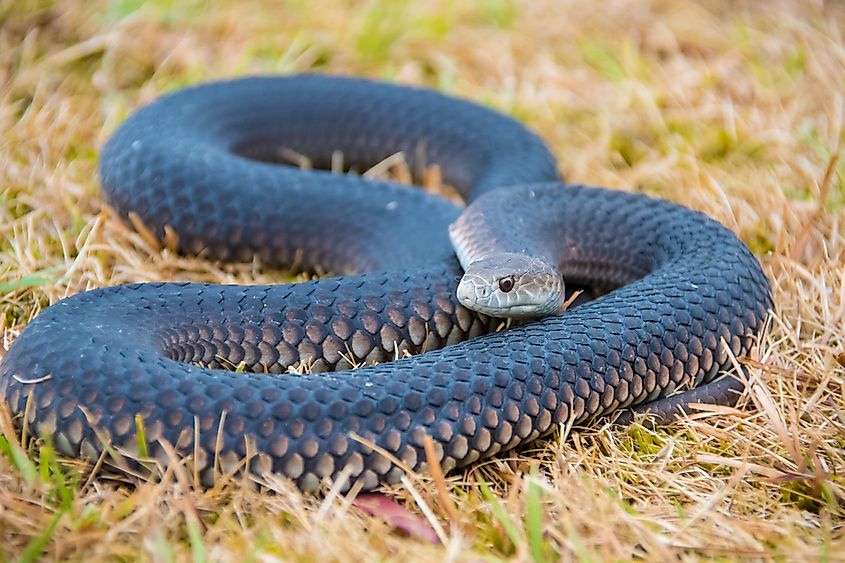
The Murray River region, straddling the border between Victoria and New South Wales, is a well-known habitat for several snake species. The riverbanks, floodplains, and adjacent agricultural areas create an ideal environment for snakes like the Eastern Brown Snake and Tiger Snake. The abundance of water attracts these reptiles, especially during dry periods when they seek out reliable water sources.
Recreational activities along the river, such as fishing and camping, increase the likelihood of human-snake encounters. Authorities in the region often advise visitors to be cautious and aware of their surroundings, particularly near the water's edge where snakes are most commonly found.
Werribee River Park
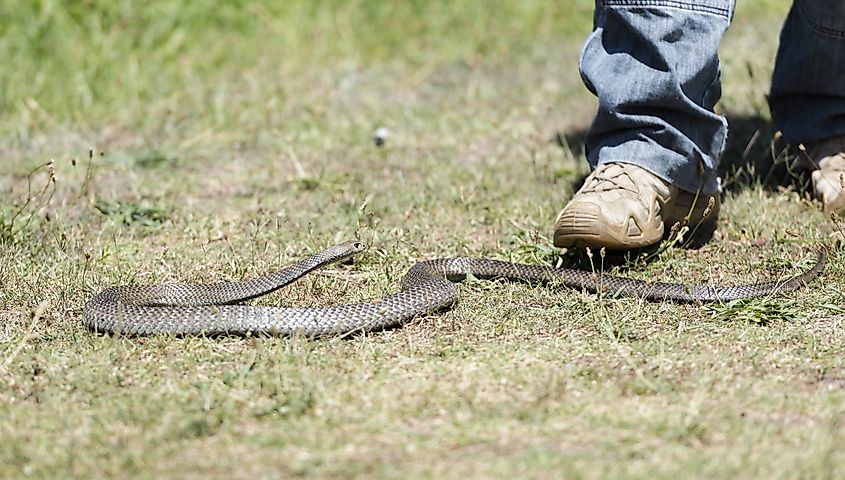
Located close to Melbourne, Werribee River Park is a popular spot for picnics and nature walks. However, its proximity to the city does not exempt it from being a snake habitat. The park's grassy areas and wetlands are home to several snake species, including the Eastern Brown Snake. The park's natural beauty and recreational facilities draw many visitors, increasing the chances of snake encounters.
Regular maintenance and clear signage help mitigate risks, but visitors should remain vigilant. The combination of human activity and natural snake habitats requires a balanced approach to safety and conservation in the park.
Otway Ranges
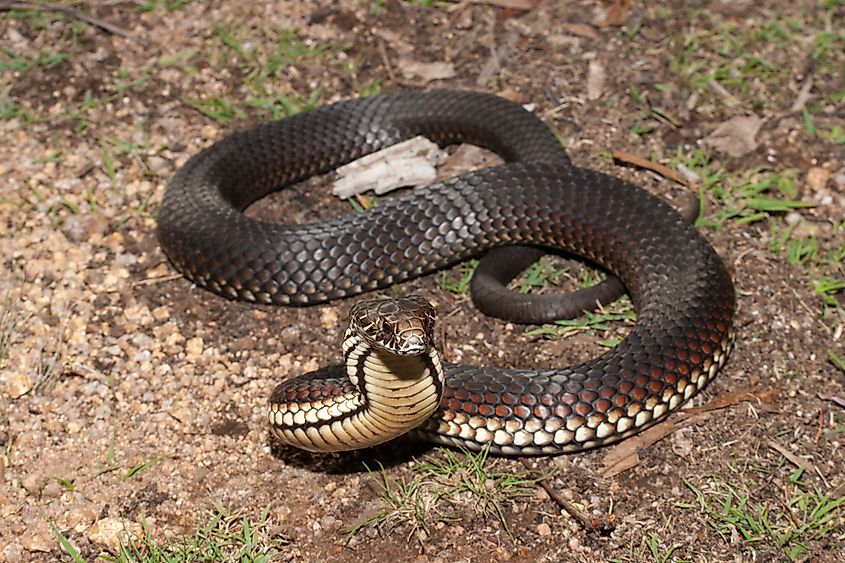
The Otway Ranges, with their lush rainforests and scenic coastlines, are another snake hotspot in Victoria. The area is particularly known for the presence of the Tiger Snake and Copperhead. These snakes are well-adapted to the region's cool, wet climate and dense vegetation. The Great Otway National Park, a popular destination within the ranges, often reports snake sightings along its many trails and picnic areas.
Visitors are encouraged to stay on designated paths and avoid tall grass and underbrush where snakes may be hiding. The Otway Ranges' popularity with tourists, combined with its natural snake habitat, necessitates caution and awareness to ensure safe and enjoyable experiences in this beautiful area.
The Takeaway
Victoria's diverse landscapes and climates create ideal habitats for a variety of snake species. From the vineyards of the Yarra Valley to the coastal beauty of the Mornington Peninsula, each of these areas presents unique challenges for residents and visitors alike. Understanding the specific risks and taking appropriate precautions can significantly reduce the likelihood of dangerous encounters with these reptiles. By staying informed and vigilant, Victorians and tourists can safely enjoy the natural beauty of this remarkable state while respecting the presence of its native wildlife.


